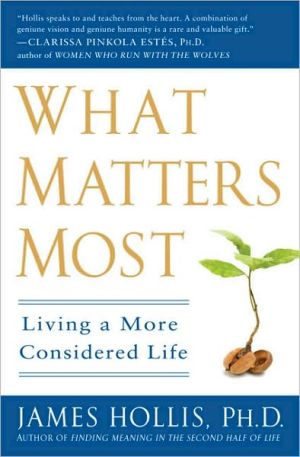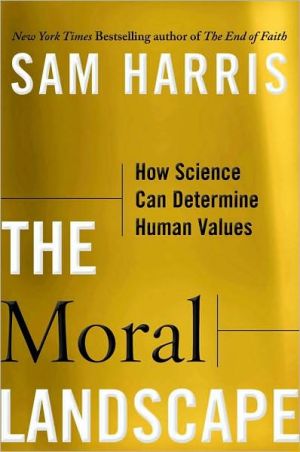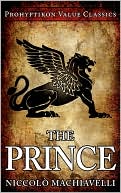What Matters Most: Living a More Considered Life
Why are we here?\ What is the meaning of existence?\ What truly matters the most in life?\ We have all felt the looming presence of these questions, but it’s never easy to examine our life’s path and its meaning. To begin finding answers, we must start by exploring our own internal ideals, values, and beliefs.\ Taking a fresh look at the concept of happiness, James Hollis encourages you to learn to tolerate ambiguity, embrace growth over security, engage spiritual crisis, and acknowledge the...
Search in google:
The celebrated author of Finding Meaning in the Second Half of Life delivers a unique look at happiness, sharing a Jungian approach to finding a fearless, authentic path.Why are we here? What is the meaning of existence? What truly matters the most in life? To even begin to answer these questions, we must start by exploring our own internal ideals, values, and beliefs. Presenting the unique perspective of respected analyst and author James Hollis, Ph.D., What Matters Most helps readers learn to appreciate (even be amazed by) events unfolding within, even as the external world creates constant struggles.Taking a fresh look at the concept of happiness, Hollis uses a warm, accessible tone to encourage readers to learn to tolerate ambiguity, embrace growth rather than security, respect the power of Eros, engage spiritual crises, and acknowledge the shadow of mortality. Providing inspiring wisdom and personal reflections to address our deepest worries, What Matters Most yields far more than mere self-help clichés. Instead, Hollis guides readers in uncovering the heart of the matter, discovering what it means to truly live life to its fullest, most meaningful state—as fully engaged citizens of the world. Phyllis Goodman - Library Journal Jungian analyst Hollis (Finding Meaning in the Second Half of Life) wants us to see that we often lose sight of destiny's plan by trying to live up to others' expectations. However, our psyche does not forget and will send out a call for us to change-a call that may come in the form of suffering, depression, illness, or boredom. The author encourages us to work through the suffering, even entering therapy if necessary, to begin the work of going home. For Hollis, however, home is not a building or place but rather a return to the self. With references to prose, drama, poetry, and popular culture as well as examples from his private practice, Hollis shows us how we can look deeper into our soul, or psyche, and do the work we must do to become the person we were meant to be. Hollis's message will resonate with many readers, though the somewhat mystical tone, with references to "the gods," may not work for everyone. For large public libraries.
Preface: What Matters Most ixChapter 1 Shock and Awe: That Life Not be Governed by Fear 1Chapter 2 Saving the Appearances: That We Learn to Tolerate Ambiguity 17Chapter 3 Starving Amid Abundance: That We Consider Feeding the Soul 25Chapter 4 That We Respect the Power of Eros 43Chapter 5 That We Step into Largeness 63Chapter 6 That We Risk Growth over Security 81Chapter 7 That We Live Verbs Not Nouns 95Chapter 8 That We Find and Follow the Path of Creativity and Delight in Foolish Passions 113Chapter 9 That We Engage Spiritual Crises, and Other Bad Days at the Office 143Chapter 10 That we Write Our Story, Lest Someone Else Write it for Us 165Chapter 11 Amor Fati: That We Fight Fate, and Love it Also 187Chapter 12 That We Live More Fully in The Shadow of Mortality 211Chapter 13 That We Accept at Last That Our Home is Our Journey, and Our Journey is Our Home 237Bibliography 257Index 261
\ Library JournalJungian analyst Hollis (Finding Meaning in the Second Half of Life) wants us to see that we often lose sight of destiny's plan by trying to live up to others' expectations. However, our psyche does not forget and will send out a call for us to change-a call that may come in the form of suffering, depression, illness, or boredom. The author encourages us to work through the suffering, even entering therapy if necessary, to begin the work of going home. For Hollis, however, home is not a building or place but rather a return to the self. With references to prose, drama, poetry, and popular culture as well as examples from his private practice, Hollis shows us how we can look deeper into our soul, or psyche, and do the work we must do to become the person we were meant to be. Hollis's message will resonate with many readers, though the somewhat mystical tone, with references to "the gods," may not work for everyone. For large public libraries.\ —Phyllis Goodman\ \ \








